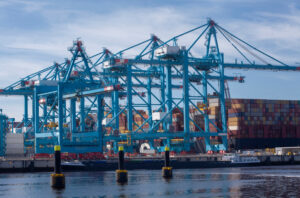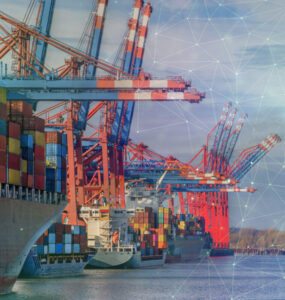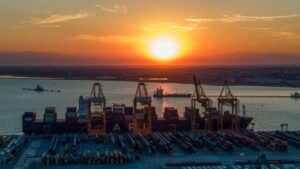ABB and Ballard Power Systems have started a partnership to develop the next-generation of fuel cell power systems for sustainable marine operations.
The new fuel cell power system will be jointly developed by the two companies and is expected to play a significant role in advancing sustainable and environmental alternatives for powering marine transport.
Fuel cell systems convert the chemical energy from hydrogen into electricity through an electrochemical reaction — a process that involves no combustion and has clean water as its only by-product.
With renewable energy being used to produce the hydrogen for the system, the entire energy chain can be 100% clean and renewable.
View ABB's range of automated and electrical solutions on PTI's supplier directory
ABB and Ballard Power Systems will utilize existing kilowatt-scale fuel cell technology and optimize them to create cutting-edge megawatt-scale solutions for powering large ships.
The new power systems are anticipated to feature an electrical generating capacity of 3MW, and will be similarly sized to traditional fossil fuel powered marine engines.
Chief Commercial Officer at Ballard Power Systems, Rob Campbell, said: “This MoU is a significant next step in our ongoing relationship with ABB, the innovative market leader in marine solutions.
“The rapidly evolving marine market represents an exciting growth opportunity for zero-emission fuel cell technology.
“And, Ballard’s prior development and deployment of megawatt-scale containerized PEM fuel cell systems for land-based use gives us the critical experience and knowledge to collaborate effectively on the development of clean energy solutions for key marine market applications.”
Read the technical paper from Florida A&M University — “Optimizing Berth Schedules: It’s Time to go Green”
The initial stage of development for the power systems will focus on passenger vessels, however the applications could range across all types of large vessels.
President of ABB's Industrial Automation division, Peter Terwiesch, commented: “The next generation of ships – electric, digital and connected – will require energy sources that are not only able to meet the increasing demands for fuel efficiency, but will also enable cleaner and safer shipping.
“We are excited to collaborate with Ballard Power Systems on driving the development of the next-generation fuel cell technology that will power the vessels of the future.”
Read more:
-
Rolling out liquefied natural gas infrastructure for shipping in Europe would cost US$ 22 billion and deliver a 6% reduction in ship greenhouse gas emissions by 2050 a report finds
-
The Port of Long Beach is moving ahead with a US$ 16.8 million project to build infrastructure to support electric-powered, zero-emissions cargo-handling equipment









